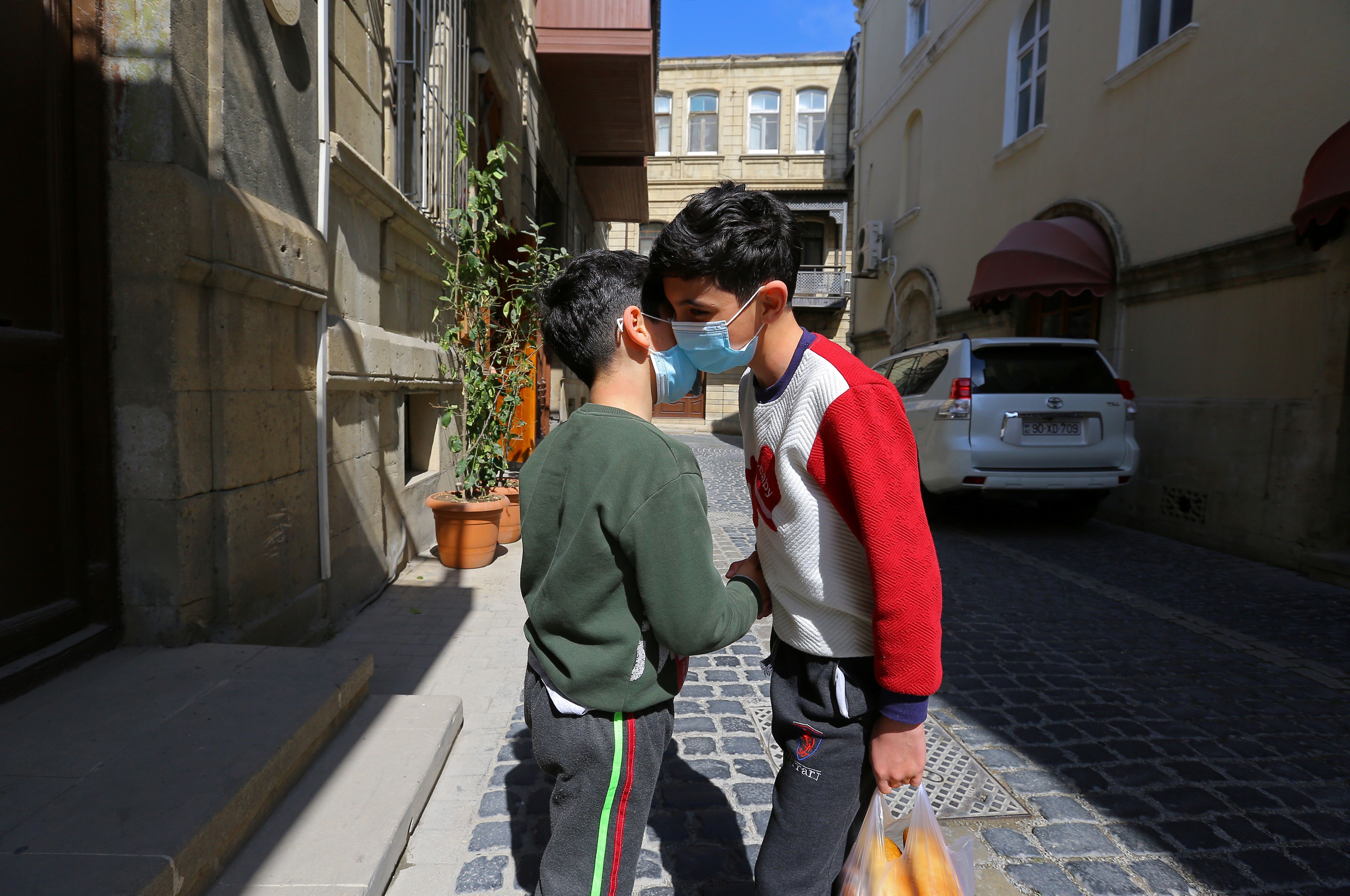South Caucasus Countries and COVID-19

On 26 February, the first officially confirmed case of COVID-19 in the Caucasus was reported in Georgia. The spread of the pandemic in the region was associated with the return of the region’s citizens from abroad and the increase in incidence in neighbouring Iran, which, however, did not contribute to the increase of anti-Iranian sentiment. Georgia, Armenia, and Azerbaijan have adopted a similar approach in the fight against the coronavirus (SARS-CoV-2), introducing gradual restrictions on public life since mid-March. Educational, cultural, and commercial institutions have been closed. Borders too, although the transport of goods continues to ensure the continuity of supply chains. Mass gatherings and events, moving freely around the country, public transport, and even private means of transport in Georgia have been banned. Spring conscriptions were cancelled. A key problem for the countries in the region remains the low number of tests performed, their credibility, and that the authorities underestimated the actual scale of the pandemic, along with low social discipline in the face of the restrictions and the failure of the countries’ health services (all rank in the second-hundred of the WHO ranking in terms of resistance to biological threats).
Georgia
This country officially has recorded the fewest number of cases, just 511 as of 28 April; however, it also has performed the fewest tests per million inhabitants (2,900) out of the three countries in the region. The largest outbreaks are in the cities of Bolnisi and Marneuli, inhabited by the Azerbaijani minority, which is not integrated into society (the first protests of trade restrictions have already taken place).
Despite a political crisis, ongoing since June 2019, the government’s actions initially gained support from the opposition as part of a cross-party fight against the virus. The ban on assembly stopped protests in Tbilisi where protesters had been demanding, among others, changes to electoral law before the parliamentary elections scheduled for October. The attitude of the Georgian Orthodox Church, which refuses to comply with the restrictions and conducts services with adherents in attendance, remains a problem.
The government has developed an anti-crisis package worth around €1 billion (around 6% of GDP), assuming an increase in infrastructure investment, financial support, and tax exemptions for the tourism industry and small and medium-sized enterprises (SMEs), and increasing social packages. The authorities oversee the food supply and try to prevent speculation by freezing food prices. An attempt was made to stabilise the exchange rate of the lari, which in March fell by around 20% against the dollar, including closing all exchange offices.
Despite the first signs of the presence of the coronavirus in the region of Abkhazia, the presidential election was held on 22 March. To date, three cases of COVID-19 have been officially recorded there. Georgia assists the inhabitants of the separatist republic by admitting patients to its hospitals, creating a quarantine centre, and announcing the creation of a hospital treating infectious diseases at the border with Abkhazia. The second separatist republic, South Ossetia, has not reported any cases so far, but if it does, its residents are legally prevented from accessing medical assistance offered by Georgia due to the policy of the republic’s authorities (e.g., importing medicines from Georgia is prohibited) and the related closure of the border crossing points with Georgia.
Armenia
The country has the largest number of official cases in the region, at 1,867 infected and 6,500 tests per million inhabitants as of 28 April. The largest outbreak is around the capital city of Yerevan.
The authorities postponed a referendum on reform of the Constitutional Court, scheduled for 13 March. The restrictions introduced have been approved by the Armenian Apostolic Church (e.g., mass is celebrated without adherents present). Commemorations of the anniversary on 24 April of the Armenian genocide have also been restricted.
The government has developed a package of anti-crisis programmes worth about €700 million (about 5% of GDP), including non-returnable loans and tax exemptions for SMEs and social support for families. Their implementation depends on the financial support of local oligarchs, often associated with opposition circles (including the Karabakh clan, which ruled the country until 2018) and using the crisis to strengthen their position in relation to the government.
Armenia limited traffic on the border with Nagorno-Karabakh (NK), where eight cases of COVID-19 were reported. However, general elections (parliamentary and presidential) held on 31 March and 14 April were not cancelled in the NK.
Azerbaijan
The country has officially recorded 1,678 cases as of 28 April and performed the largest number of tests in the region, at 12,700 per one million inhabitants. However, the authorities are underestimating the real scale of the pandemic. The capital Baku and the Absheron Peninsula are its largest focus and have been isolated from the rest of the country. Prayers in mosques have been suspended.
The government has intensified the surveillance of citizens (using mobile services) and introduced penalties for promoting disinformation related to the pandemic. The restrictions are used simultaneously to deal with the opposition (including arrests for allegedly disseminating disinformation). Azerbaijan is also using the pandemic for propaganda activities—despite a shortage of supplies, it has declared it is providing support to other countries (including Turkic Council members) and announced it is joining research on a coronavirus vaccine.
The government will allocate €1.5 billion (around 3% of GDP) to combat the economic crisis by supporting SMEs and protecting jobs. However, the fall in commodity prices will force Azerbaijan, which is economically dependent on exports of these products (45% of GDP), to adjust a budget already burdened by social packages implemented before the parliamentary elections in February.
In Nakhichevan, an Azerbaijani exclave located between Armenia, Turkey, and Iran, the first case of COVID‑19 was found on 6 April. At the end of February, as a result of the closure of borders by Iran and Turkey (the border with Armenia is permanently closed), Nakhichevan was effectively land-locked. Supply of the exclave continues through an air bridge implemented by Azerbaijan Airlines.
Assistance to the Countries of the Region. Georgia, Armenia, and Azerbaijan are seeking help abroad in countering the pandemic. Georgia has turned to NATO for support. So far, the EU has allocated about €960 million for short- and medium-term support to Eastern Partnership (EaP) countries, including the three Caucasian countries. The EC has offered an additional €150 million to Georgia as part of macro-financial assistance.
The countries of the region also receive help from China, which sells them medical equipment and humanitarian aid, and future preferential-rate loans—all instruments strengthening the Asian power’s position in the region. Russia remains passive about the pandemic in the Caucasus and limits its activity to epidemiological protection of its military facilities in Armenia and Abkhazia.
Conclusions and Perspectives
The actions undertaken by Georgia, Armenia, and Azerbaijan and their institutional capacity are insufficient in the face of a further increase in COVID-19 incidence. This is likely to lead to a sharp increase in the number of victims in these countries. An economic slowdown is also ahead—the World Bank estimates GDP growth by the end of 2020 will be 0.2% for Georgia, 1.7% for Armenia, and -0.5% for Azerbaijan)—which will force them to adapt their economies to pandemic conditions. However, the countries of the region cannot afford adequate anti-crisis programmes in relation to the needs. The economic crisis caused by the COVID-19 pandemic will increase public dissatisfaction and the risk of anti-government protests.
The political consequences of the pandemic in these three countries are different. In Georgia, the restrictions hamper the opposition by banning campaigning or organising protests and will be used by the government in the context of this year’s parliamentary elections. In Azerbaijan, the restrictions give the ruling authorities’ the opportunity for greater public surveillance and propaganda, masking the difficulties in fighting COVID-19. In Armenia, the restrictions stop the government’s ability to reform the Constitutional Court while the deterioration of the economic situation will result in a decrease in support for the government of Nikol Pashinian. A limited escalation of Armenian-Azerbaijani clashes in the NK is possible, which the authorities of both countries could use to divert public attention from how they are dealing with the pandemic and its effects.
EU economic support is insufficient to meet the needs of the countries of the region, but it will limit the harm induced by the pandemic on their economies and strengthen the im


